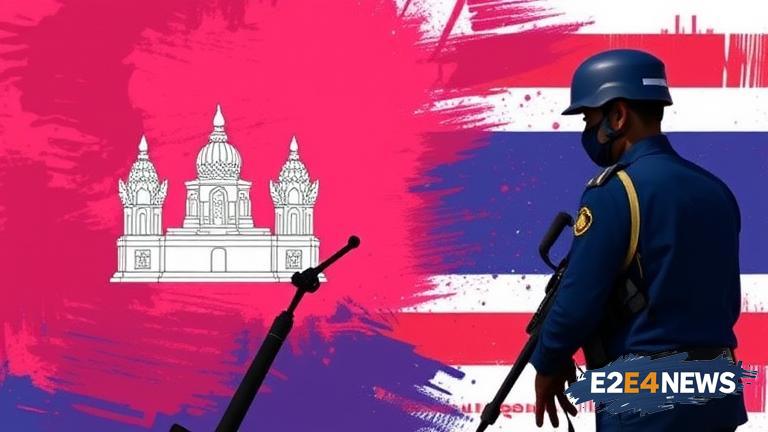Cambodia has formally lodged a protest with Thailand over a recent border incursion that occurred on August 25. The incident has sparked renewed tensions between the two nations, with Cambodia accusing Thailand of violating its sovereignty. According to reports, Thai troops crossed into Cambodian territory, prompting a swift response from Cambodian authorities. The Cambodian government has condemned the incursion, calling it a ‘serious violation’ of its territorial integrity. The incident is the latest in a series of border disputes between Cambodia and Thailand, which have been ongoing for several years. The two nations have a long-standing disagreement over the demarcation of their shared border, with both sides claiming ownership of certain territories. The dispute has led to several clashes between the two nations in the past, resulting in the loss of life and damage to property. Cambodia has repeatedly called on Thailand to respect its sovereignty and territorial integrity, but the issue remains unresolved. The latest incident has sparked widespread condemnation in Cambodia, with many calling for the government to take stronger action against Thailand. The Cambodian government has vowed to protect its territory and sovereignty at all costs, and has warned Thailand against any further incursions. The incident has also drawn attention from the international community, with several countries calling for calm and restraint. The Association of Southeast Asian Nations (ASEAN) has also weighed in on the issue, urging both sides to resolve their differences through peaceful means. Despite the tensions, both Cambodia and Thailand have expressed a commitment to maintaining good relations and resolving their differences through diplomacy. However, the latest incident has raised concerns about the stability of the region and the potential for further conflict. The border dispute between Cambodia and Thailand is a complex issue, with deep historical and cultural roots. The two nations have a long and complex history, with periods of both cooperation and conflict. The current dispute is centered on the demarcation of their shared border, which has never been formally agreed upon. Both sides claim ownership of certain territories, including the disputed Preah Vihear temple. The temple, which is a UNESCO World Heritage Site, has been a source of tension between the two nations for several years. In 2008, the temple was the site of a major clash between Cambodian and Thai troops, resulting in the loss of life and damage to property. Since then, the two nations have been working to resolve their differences through diplomacy, but the issue remains unresolved. The latest incident has raised concerns about the potential for further conflict, and has highlighted the need for a lasting solution to the border dispute. The international community has called on both sides to exercise restraint and to resolve their differences through peaceful means. The incident has also sparked a wider debate about the role of ASEAN in resolving regional conflicts. The organization has been criticized for its failure to effectively address the border dispute between Cambodia and Thailand, and for its lack of action in preventing further conflict. Despite these challenges, ASEAN remains committed to promoting peace and stability in the region, and has vowed to continue working towards a resolution to the border dispute. The incident has also highlighted the importance of diplomacy and dialogue in resolving international conflicts. The Cambodian and Thai governments have both expressed a commitment to resolving their differences through peaceful means, and have vowed to continue working towards a lasting solution to the border dispute.
